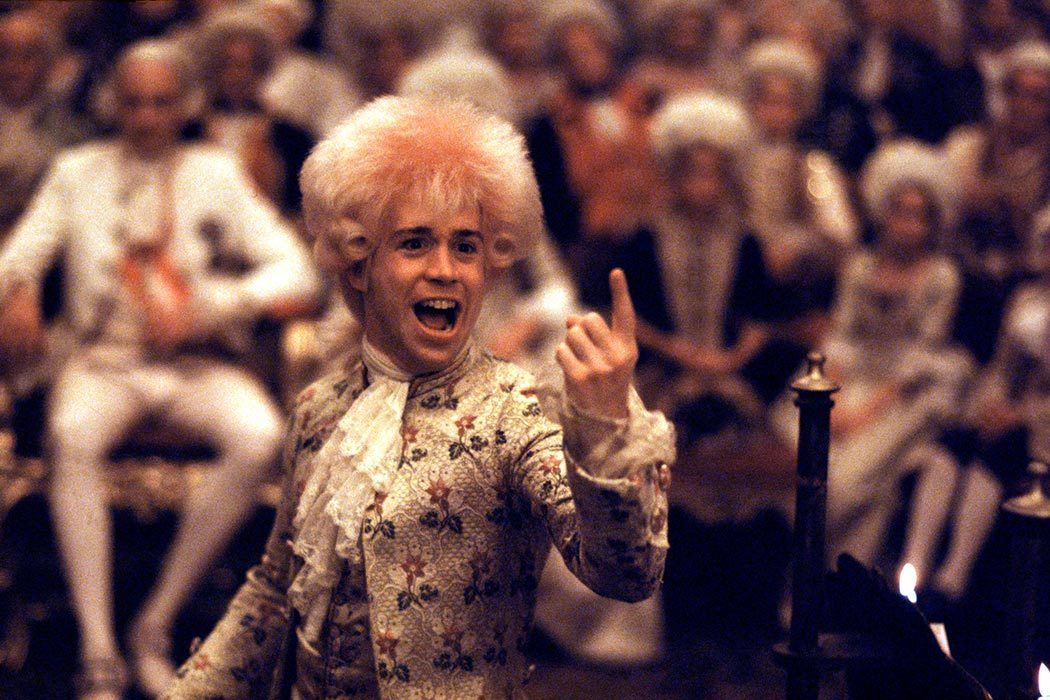Amadeus (1984)

Plot and Themes
Premise: The film is framed as a confession by Antonio Salieri (played by F. Murray Abraham), who is now in a mental institution and recounts his life story. It explores Salieri’s envy of Mozart’s (Tom Hulce) prodigious talent and the complex relationship between the two composers. The narrative delves into themes of genius, jealousy, and the struggle between art and mediocrity.
Themes:
- Genius vs. Mediocrity: The film juxtaposes Mozart’s natural talent with Salieri’s disciplined but less extraordinary abilities.
- Jealousy and Envy: Salieri’s envy of Mozart drives much of the film’s conflict and drama.
- The Struggle for Recognition: Both composers seek validation in different ways, reflecting on the nature of artistic success.

Characters and Performances
Tom Hulce as Wolfgang Amadeus Mozart: Hulce’s portrayal of Mozart is exuberant and eccentric, capturing the complexity of the character’s genius and personality. His performance is both energetic and emotionally nuanced, showcasing Mozart’s brilliance and his struggles.
F. Murray Abraham as Antonio Salieri: Abraham delivers a masterful performance as Salieri, whose deep-seated envy and guilt form the emotional core of the film. His portrayal earned him an Academy Award for Best Actor and is widely regarded as one of the film’s standout elements.
Supporting Cast: The supporting performances, including Elizabeth Berridge as Constanze Mozart and Roy Dotrice as Leopold Mozart, add depth to the story, contributing to its rich portrayal of 18th-century Vienna.
Production and Aesthetic
Direction and Screenplay: Milos Forman’s direction is praised for its ability to balance historical drama with theatricality, maintaining a compelling narrative that remains engaging throughout. Peter Shaffer’s screenplay adeptly blends historical facts with dramatic license, enhancing the emotional and psychological depth of the story.
Music: The film’s soundtrack features many of Mozart’s most famous compositions, which are integral to the storytelling. The music is used not just as background but as a reflection of the characters’ emotions and the film’s thematic content.
Cinematography and Design: The film’s visual style, designed by Patrizia von Brandenstein, captures the opulence and atmosphere of 18th-century Vienna. The costumes, set designs, and cinematography contribute to an immersive historical experience, with scenes like the lavish court performances and intimate settings adding to the film’s authenticity.
Reception
Critical Response: “Amadeus” received widespread acclaim upon its release, with praise directed at its performances, direction, and musical score. It won eight Academy Awards, including Best Picture, Best Director, and Best Actor, highlighting its broad appeal and critical success.
Cultural Impact: The film has had a lasting impact on how people view Mozart and his music, influencing both public perceptions and artistic portrayals of the composer. It remains a significant and celebrated work in both film and music history.











